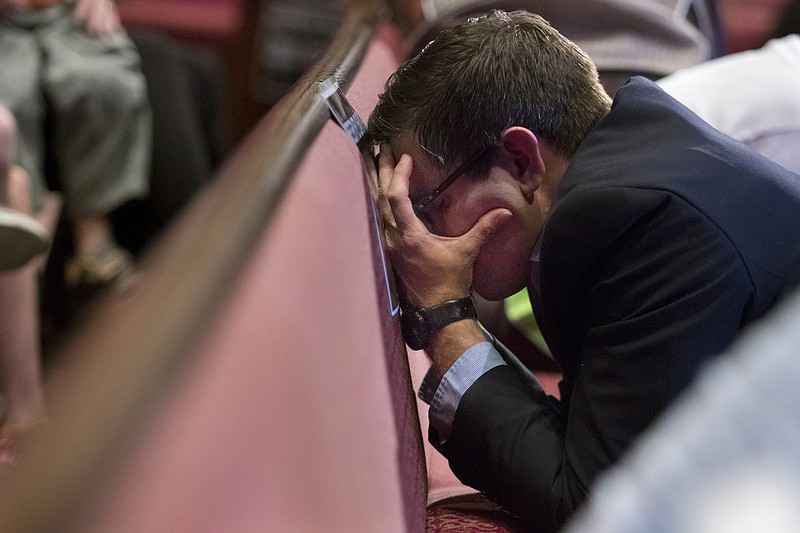When someone jams a microphone in your face and asks for your reaction to a shooting about which scant details are available, a natural instinct for people of faith is to say you'll be praying for those involved or to ask others of a like mind to be praying about the situation.
Today, politicians who said those things Wednesday as details unfolded about a shooting in San Bernardino, Calif., that left 14 dead, are being shamed for having that instinct.
For the left, it's come to that.
Republican presidential candidates Jeb Bush, Rand Paul, Ted Cruz and Lindsey Graham, among others, made such statements live and thrugh Twitter when they - without knowledge of suspects, motives, gun backgrounds and other pertinent information - were confronted by reporters.
The Twitter reaction in response of Sen. Chris Murphy, D-Conn., who had a similar lack of information, was typical: "Your 'thoughts' should be about steps to stop this carnage. Your 'prayers' should be for forgiveness if you do nothing - again."
The New York Daily News headline, accompanied by photos and the mention of prayers by four Republican politicians, was: "God Isn't Fixing This." The Huffington Post had this: "Another Mass Shooting, Another Deluge of Tweeted Prayers."
For those of faith, praying in times of tragedy and joy is akin to breathing. It just comes naturally.
The Bible, after all, has expectations for people of faith: "But let him ask in faith, with no doubting" (James 1:6); "Brothers, my heart's desire and prayer to God for them is that they may be saved" (Romans 10:13); and "The prayer of a righteous person has great power as it is working" (James 5:16).
Politicizing prayer. It's a new low.
